#App Designer
Explore tagged Tumblr posts
Text

#natalie hampton#app designer#anti bullying activist#activist#natalie#sit with us#developer#ceo#founder#businesswoman
20 notes
·
View notes
Text
Car Rental App Design
This is an exploration of Car Rental App Design.
Looking for exceptional design solutions?
Our team provides top-tier designs that surpass your aspirations.
Take a look at our design work:- https://bit.ly/3W5hKgL.

#car rental app design#app design#app ui design#app ux design#ui design#ux design#design#app designer
0 notes
Text
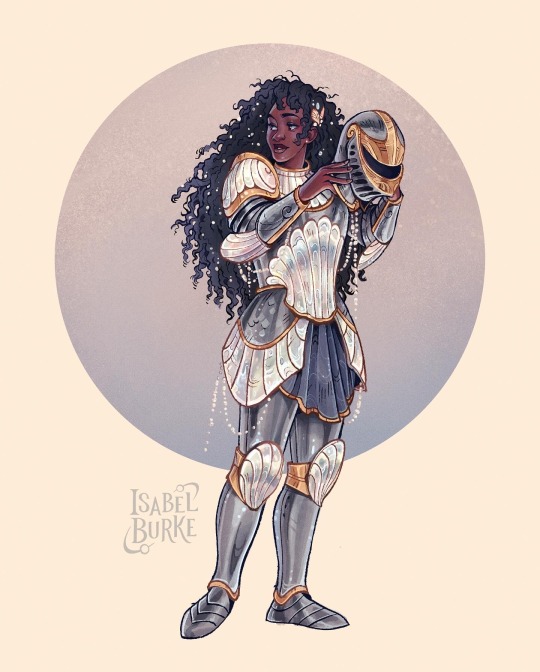
lady from the ocean 🌊🐚
✦ find me on instagram @the.flightless.artist ✦
#art#illustration#digital art#drawing#digital illustration#procreate app#digital drawing#digital artist#procreate art#ipad pro#women in armor#fantasy character design#character design#lady knight#knight art#original character#ocean knight#armor design
5K notes
·
View notes
Text
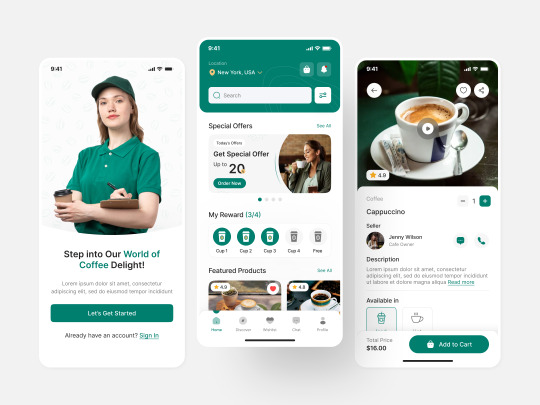
Coffee Shop App UI Design | App Design | UIUX Design https://www.insightlancer.com/
#design#ui#development#ux#app#figmadesign#hireus#coffee shop app#app ui designer#hire figma designer#app designer
0 notes
Text



I have been rotating in my mind some headcanon's of the Orb and its influence on Gale's body, because I feel like its design could be improved + I really like his early concept where his hand was bandaged
#bg3#gale dekarios#my art#i spend too much time on this#gale of waterdeep#click on to make slightly less blurry. this app tests me eveyday#anatomy practice#i might have taken some inspiration from dragon age inquisition...#maybe i will change the design later#i feel like there is still something off in it
2K notes
·
View notes
Text
MATLAB App Designer is a drag and drops feature of MATLAB that lets you create professional apps without being an experienced software developer. Drag and drop visual components to layout your graphical user interface (GUI) design and use the integrated editor to program its behaviour quickly. In this blog, you will get to know the essential elements of the app designer.
0 notes
Text

AND HERE IT IS!!!! The big ol wall of various kitty cats from 30 different clangen blogs! Thank you so much to everyone who suggested cats for me to draw :D I unfortunately wasn't able to draw a cat from every single blog requested, but rest assured that the blogs I missed have been written down to be first in line for if I do another project like this! <3
I'll tag everyone's blogs under the cut and then at the very bottom there's a version of this drawing without text or borders :]
And once again, thank y'all for being so wonderful!! <3
Asterglory - @lightclangen
Scorchplume - @clangenrising
Fogfreckle - @nimbusclan
Violetsong - @branchclangen
Gorseflame - @hawthornclangen
Basseye - @cricketclan
Icystar - @tallclan
Wheatkit - @dayclan
Quiver - @mammoth-clangen
Wiggity Wacks - @fallenclan
Cinnamonstar - @wtclangen
Meadowshade - @nettleclan-clangen
Raggedghost - @echoes-in-echoclan
Goldpaw - @our-clangen
Peanutkit - @circus-clangen
Magpiehop - @ranchclan
Lynxdawn - @salt-clangen
Snowkit - @boughclan-clangen
Tangleflame - @songclangen
Shatterhaze - @hillclan-ruins
Mango Martini - @dustclan-clangen
Claweye - @gooseclan
Shadowdusk - @duskclangen
Silkglide - @chasing-faith-and-fate
Angelwing - @heavensgaze
Ravenfreckle - @briarclan-horror-artlocke
Talonburn - @direclan
Songpaw - @loudclan-clangen
Vinepaw - @splinterclan
Rosemary - @bearclangen

#clangen#clan generator#sigh. tumblr app glitched and published this before i intended :') i really wanted to do paragraphs complimenting each design!!!#oh welb. ill do that in the morning. come by and get your compliments later!!!! <3<3<3#also to the one person in my askbox asking me to make a non sporeclan themed blank of this ill do that very soon too!!!!!!
560 notes
·
View notes
Text
How lock-in hurts design

Berliners: Otherland has added a second date (Jan 28) for my book-talk after the first one sold out - book now!

If you've ever read about design, you've probably encountered the idea of "paving the desire path." A "desire path" is an erosion path created by people departing from the official walkway and taking their own route. The story goes that smart campus planners don't fight the desire paths laid down by students; they pave them, formalizing the route that their constituents have voted for with their feet.
Desire paths aren't always great (Wikipedia notes that "desire paths sometimes cut through sensitive habitats and exclusion zones, threatening wildlife and park security"), but in the context of design, a desire path is a way that users communicate with designers, creating a feedback loop between those two groups. The designers make a product, the users use it in ways that surprise the designer, and the designer integrates all that into a new revision of the product.
This method is widely heralded as a means of "co-innovating" between users and companies. Designers who practice the method are lauded for their humility, their willingness to learn from their users. Tech history is strewn with examples of successful paved desire-paths.
Take John Deere. While today the company is notorious for its war on its customers (via its opposition to right to repair), Deere was once a leader in co-innovation, dispatching roving field engineers to visit farms and learn how farmers had modified their tractors. The best of these modifications would then be worked into the next round of tractor designs, in a virtuous cycle:
https://securityledger.com/2019/03/opinion-my-grandfathers-john-deere-would-support-our-right-to-repair/
But this pattern is even more pronounced in the digital world, because it's much easier to update a digital service than it is to update all the tractors in the field, especially if that service is cloud-based, meaning you can modify the back-end everyone is instantly updated. The most celebrated example of this co-creation is Twitter, whose users created a host of its core features.
Retweets, for example, were a user creation. Users who saw something they liked on the service would type "RT" and paste the text and the link into a new tweet composition window. Same for quote-tweets: users copied the URL for a tweet and pasted it in below their own commentary. Twitter designers observed this user innovation and formalized it, turning it into part of Twitter's core feature-set.
Companies are obsessed with discovering digital desire paths. They pay fortunes for analytics software to produce maps of how their users interact with their services, run focus groups, even embed sneaky screen-recording software into their web-pages:
https://www.wired.com/story/the-dark-side-of-replay-sessions-that-record-your-every-move-online/
This relentless surveillance of users is pursued in the name of making things better for them: let us spy on you and we'll figure out where your pain-points and friction are coming from, and remove those. We all win!
But this impulse is a world apart from the humility and respect implied by co-innovation. The constant, nonconsensual observation of users has more to do with controlling users than learning from them.
That is, after all, the ethos of modern technology: the more control a company can exert over its users ,the more value it can transfer from those users to its shareholders. That's the key to enshittification, the ubiquitous platform decay that has degraded virtually all the technology we use, making it worse every day:
https://pluralistic.net/2023/02/19/twiddler/
When you are seeking to control users, the desire paths they create are all too frequently a means to wrestling control back from you. Take advertising: every time a service makes its ads more obnoxious and invasive, it creates an incentive for its users to search for "how do I install an ad-blocker":
https://www.eff.org/deeplinks/2019/07/adblocking-how-about-nah
More than half of all web-users have installed ad-blockers. It's the largest consumer boycott in human history:
https://doc.searls.com/2023/11/11/how-is-the-worlds-biggest-boycott-doing/
But zero app users have installed ad-blockers, because reverse-engineering an app requires that you bypass its encryption, triggering liability under Section 1201 of the Digital Millennium Copyright Act. This law provides for a $500,000 fine and a 5-year prison sentence for "circumvention" of access controls:
https://pluralistic.net/2024/01/12/youre-holding-it-wrong/#if-dishwashers-were-iphones
Beyond that, modifying an app creates liability under copyright, trademark, patent, trade secrets, noncompete, nondisclosure and so on. It's what Jay Freeman calls "felony contempt of business model":
https://locusmag.com/2020/09/cory-doctorow-ip/
This is why services are so horny to drive you to install their app rather using their websites: they are trying to get you to do something that, given your druthers, you would prefer not to do. They want to force you to exit through the gift shop, you want to carve a desire path straight to the parking lot. Apps let them mobilize the law to literally criminalize those desire paths.
An app is just a web-page wrapped in enough IP to make it a felony to block ads in it (or do anything else that wrestles value back from a company). Apps are web-pages where everything not forbidden is mandatory.
Seen in this light, an app is a way to wage war on desire paths, to abandon the cooperative model for co-innovation in favor of the adversarial model of user control and extraction.
Corporate apologists like to claim that the proliferation of apps proves that users like them. Neoliberal economists love the idea that business as usual represents a "revealed preference." This is an intellectually unserious tautology: "you do this, so you must like it":
https://boingboing.net/2024/01/22/hp-ceo-says-customers-are-a-bad-investment-unless-they-can-be-made-to-buy-companys-drm-ink-cartridges.html
Calling an action where no alternatives are permissible a "preference" or a "choice" is a cheap trick – especially when considered against the "preferences" that reveal themselves when a real choice is possible. Take commercial surveillance: when Apple gave Ios users a choice about being spied on – a one-click opt of of app-based surveillance ��� 96% of users choice no spying:
https://arstechnica.com/gadgets/2021/05/96-of-us-users-opt-out-of-app-tracking-in-ios-14-5-analytics-find/
But then Apple started spying on those very same users that had opted out of spying by Facebook and other Apple competitors:
https://pluralistic.net/2022/11/14/luxury-surveillance/#liar-liar
Neoclassical economists aren't just obsessed with revealed preferences – they also love to bandy about the idea of "moral hazard": economic arrangements that tempt people to be dishonest. This is typically applied to the public ("consumers" in the contemptuous parlance of econospeak). But apps are pure moral hazard – for corporations. The ability to prohibit desire paths – and literally imprison rivals who help your users thwart those prohibitions – is too tempting for companies to resist.
The fact that the majority of web users block ads reveals a strong preference for not being spied on ("users just want relevant ads" is such an obvious lie that doesn't merit any serious discussion):
https://www.iccl.ie/news/82-of-the-irish-public-wants-big-techs-toxic-algorithms-switched-off/
Giant companies attained their scale by learning from their users, not by thwarting them. The person using technology always knows something about what they need to do and how they want to do it that the designers can never anticipate. This is especially true of people who are unlike those designers – people who live on the other side of the world, or the other side of the economic divide, or whose bodies don't work the way that the designers' bodies do:
https://pluralistic.net/2022/10/20/benevolent-dictators/#felony-contempt-of-business-model
Apps – and other technologies that are locked down so their users can be locked in – are the height of technological arrogance. They embody a belief that users are to be told, not heard. If a user wants to do something that the designer didn't anticipate, that's the user's fault:
https://www.wired.com/2010/06/iphone-4-holding-it-wrong/
Corporate enthusiasm for prohibiting you from reconfiguring the tools you use to suit your needs is a declaration of the end of history. "Sure," John Deere execs say, "we once learned from farmers by observing how they modified their tractors. But today's farmers are so much stupider and we are so much smarter that we have nothing to learn from them anymore."
Spying on your users to control them is a poor substitute asking your users their permission to learn from them. Without technological self-determination, preferences can't be revealed. Without the right to seize the means of computation, the desire paths never emerge, leaving designers in the dark about what users really want.
Our policymakers swear loyalty to "innovation" but when corporations ask for the right to decide who can innovate and how, they fall all over themselves to create laws that let companies punish users for the crime of contempt of business-model.
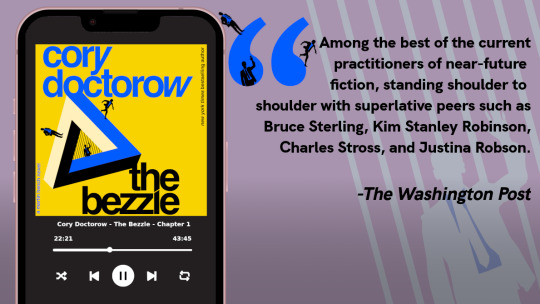
I'm Kickstarting the audiobook for The Bezzle, the sequel to Red Team Blues, narrated by @wilwheaton! You can pre-order the audiobook and ebook, DRM free, as well as the hardcover, signed or unsigned. There's also bundles with Red Team Blues in ebook, audio or paperback.

If you'd like an essay-formatted version of this post to read or share, here's a link to it on pluralistic.net, my surveillance-free, ad-free, tracker-free blog:
https://pluralistic.net/2024/01/24/everything-not-mandatory/#is-prohibited

Image: Belem (modified) https://commons.wikimedia.org/wiki/File:Desire_path_%2819811581366%29.jpg
CC BY 2.0 https://creativecommons.org/licenses/by/2.0/deed.en
#pluralistic#desire paths#design#drm#everything not mandatory is prohibited#apps#ip#innovation#user innovation#technological self-determination#john deere#twitter#felony contempt of business model
3K notes
·
View notes
Text

Fanart of Jeetdoh’s (on Twitter/X) Elita and Moonracer designs !! :D they r 2 cute, i had 2 draw them 😤😤🫶🫶
#art#artists on tumblr#digital art#drawing#procreate app#character art#digital illustration#transformers#robot#elita one#elita 1#moonracer#tf elita one#tf moonracer#jeetdoh designs#fanart#maccadam#stars#space
2K notes
·
View notes
Text
Alright, so. Now that we have official confirmation for how Awakened Hollyberry looks (she's gorgeous btw, slay queen), I'd love to take the time to talk about certain design motifs I've noticed in every Ancient - namely, that they all seem to incorporate aspects of their Beast counterpart into their appearances upon awakening.
Let's look at Dark Cacao first.


Obviously, he has an awful lot more white in his design now. "The balance of black and white is key," he says. And he demonstrates that with his hair as well as his attire: a pleasing mixture of black and white, perfectly split down his middle, in such a way that they mirror each other exactly.
Next, Golden Cheese.


It can be said that the reddish tones were added more to her surroundings than to she herself (fucking LOOK AT THAT BACKGROUND); however, it remains clear that the most important part is her Soul Jam. Upon awakening, it becomes a striking mix of gold/yellow AND red, both of which seemingly melting into each other. There are also red accents in her crown/headdress now, making it look like that red hue/glow that's in her Soul Jam is spilling outwards. (Not to mention the red triangle on her spear.)
Third is Pure Vanilla.


Smaller detail is how his brooch now more closely resembles Shadow Milk's, with those teensy little dual prongs (or whatever they're called) on the sides. Bigger detail is how the underside of his cape/cloak is not only a dark blue, which was previously nowhere to be seen on his person (but everywhere on Shadow Milk's), but there are eyes in it. Exactly like the eyes in Shadow Milk's hair.
And finally, Hollyberry.


Holly has adopted an even more unique and interesting change than the other 3 have: her Soul Jam has outright changed shape, now more closely matching the angular shape of Eternal Sugar's Soul Jam. Furthermore, there are wing shapes/designs not only in her helmet, but on the back of her shield, as well. (It can also be argued that the golden holly leaves on her helmet resemble a halo. Who else has a halo?)
Why do these details matter? What do they tell us? In my opinion, they demonstrate a specific aspect of the Ancients' enlightenment: their understanding and acceptance of their Beast counterparts and their vices. In being briefly touched by apathy, Dark Cacao remembered who and what it is he must be fighting for; it is thanks to it, and to Mystic Flour by extension, that he overcame his flaws and awakened. Through her battle with Burning Spice and the suffering he inflicted upon her, Golden Cheese came to see the merit in destruction, in that it is what she wanted and needed to carry out in order to defeat him and save everyone; destruction as a form of justice and protection, not aimless cruelty. In his time in the Spire of All Knowledge, plus his brief but willing descent into corruption and despair, Pure Vanilla came to truly grasp the meaning behind both his own actions and Shadow Milk's; embracing deceit in the pursuit of truth. And it will likely be that Hollyberry realizes the folly in her chronic desire to run away from and ignore her problems while trapped in Eternal Sugar's jewelry box, and remember who she raises her shield for and why, thus regaining her true passion while wallowing in sloth.
Resolution cannot exist without Apathy, Abundance cannot exist without Destruction, Truth cannot exist without Deceit, and Passion cannot exist without Sloth. While they may not explicitly state this understanding through words (minus Pure Vanilla), it is nevertheless conveyed through these other details. Dark Cacao, too, once knew apathy through his own bitter withdrawal from the world; he just retreated behind walls and not into a cocoon. Golden Cheese was also a victim of the cycle of change, and had everything she worked for ruined; instead of bitterly forsaking all life and letting everything go in acceptance of brtual nihilism, she just chose the opposite extreme of clinging too hard to what remained of who and what she loved and refused to let go, to the point of severe delusion. Pure Vanilla also knew the pain truth and knowledge often bring - most notably in learning what truly became of White Lily - and recognizes the desire to obscure these things in favor of amusing, comforting lies. The Ancients understand their other halves completely, their hatred and pain and sorrow, and the virtues turned vices they now stand for. And thus, they quietly embrace the power and importance of these skewed ideals, for it is they, and those fallen heroes that champion them, that finally made the Ancients become who they needed to be. They finally became whole.
In essence, they say, "you are a part of me, now and forever, for better or worse. And I accept that. I accept you."
I've been wanting to make this analysis post for a while lol. Thank you all for coming to my TED Talk, I look forward to when and how White Lily incorporates Silent Salt into her design
#i also have additional evidence via Ancient lobby designs that I believe further prove my point#but you can only upload 10 images in a post on the Tumblr app lol#if anyone would like. I'll reblog the OG post with the lobbies and explain them#(but if you remember what they look like... I'm not sure they need explanation lmao)#also this isn't necessarily a Beast x Ancient post but you're welcome to view and/or tag it as such if you want#cookie run kingdom#golden cheese cookie#dark cacao cookie#pure vanilla cookie#hollyberry cookie#ancient cookies#beast cookies#crk update#crk analysis
400 notes
·
View notes
Text

9 notes
·
View notes
Text
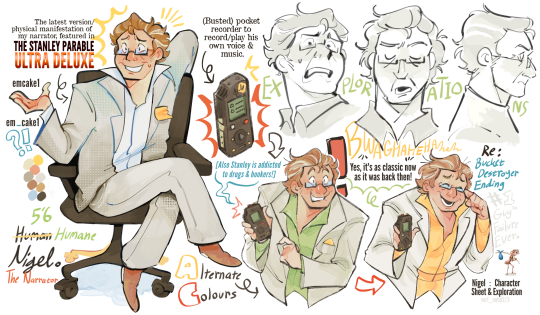
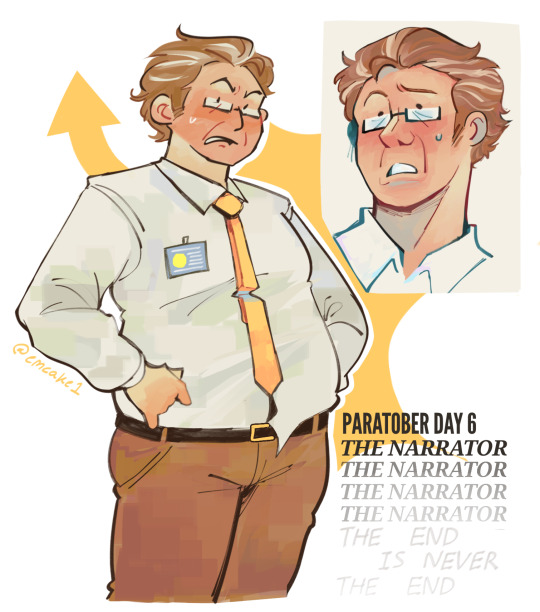
annual stanley parable doodle dump o7
+ close ups!
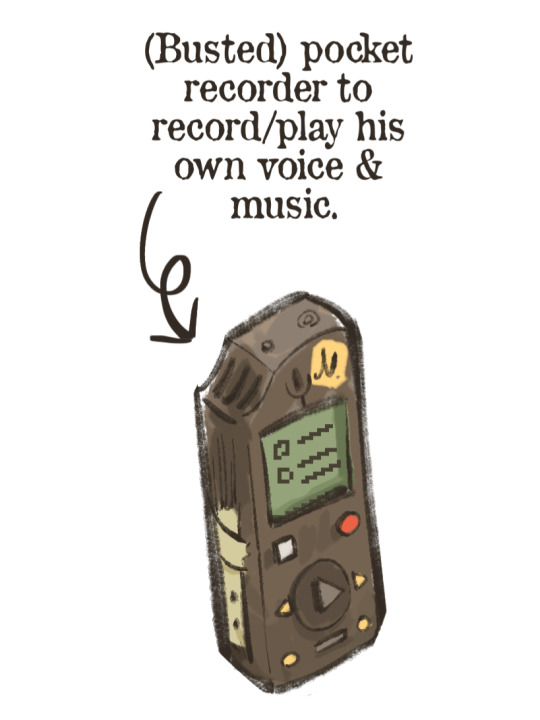
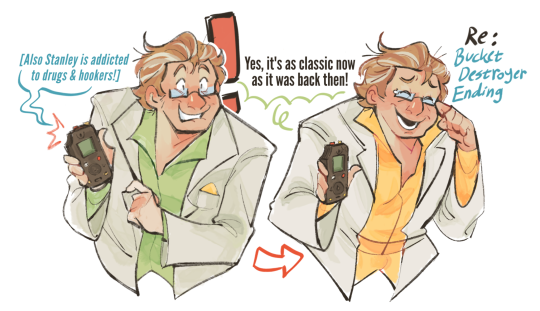
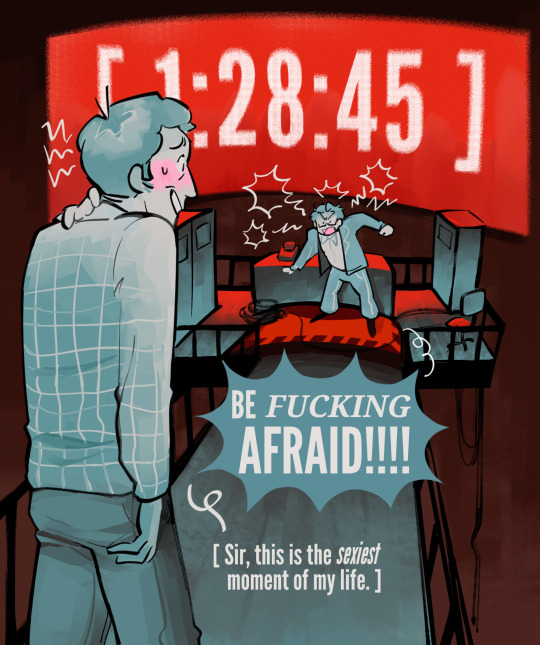

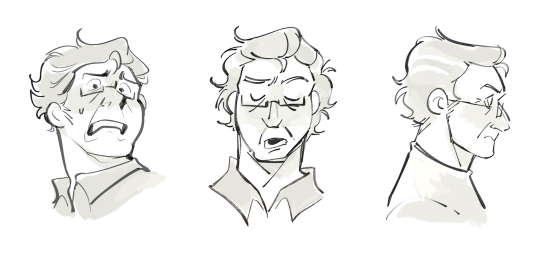

#reposting these from twt sorry#also hi I've been more active in the bird app#my art#the stanley parable#the stanley parable ultra deluxe#tsp#stanley parable#tspud#stanley parable ultra deluxe#the narrator#tsp narrator#tsp stanley#stannarrator#stanarrator#tsp mariella#paratober#ref sheet#visdev#visual development#character design
3K notes
·
View notes
Text

This feels uniquely designed to enrage all of Tumblr.
[ID: a sign in the window of a beauty shop, Kiehls, which reads "happy holidays" but because it's printed in a tree shape it looks like H APP YHOL IDAYS!]
424 notes
·
View notes
Text
wc designs batch 1

#hi guys#sorry for disappearing#i kinda forgot i had this app installed#more gijinkas soon trust#warrior cats#warriors#power of 3#hollyleaf#jayfeather#lionblaze#warriors designs
1K notes
·
View notes
Text
Try Our App: It's Like The Web Site But You Can't Select Anything
238 notes
·
View notes